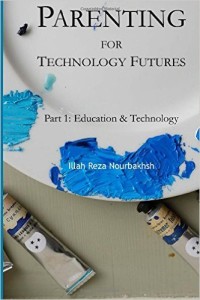 So far this summer the best book that I have read is a short and insightful book by Illah Reza Nourbakhsh: Parenting for Technology Futures, Part I. Every parent, teacher, administrator and school board member should read this book. It is a short and fulfilling read, and is only $2.99 to download the Kindle book.
So far this summer the best book that I have read is a short and insightful book by Illah Reza Nourbakhsh: Parenting for Technology Futures, Part I. Every parent, teacher, administrator and school board member should read this book. It is a short and fulfilling read, and is only $2.99 to download the Kindle book.
Avoiding the wildly popular concept of tech literacy, Nourbakhsh argues that students must have technology fluency – where students understand technology so deeply that they influence the future of technology instead of being techno-consumers.
Nourbakhsh also affirms that the teacher is an important and necessary component for improving student attitudes – one that can’t be replaced by any technology. Parents should engage their schools and the teachers of their children to discuss the role of technology in schools.
In addition to providing parents with ways to engage the educational system, Nourbakhsh provides a recipe for parents to encourage tech fluency at home that includes participation, co-learning, allowing your child to teach you tech, and using technology interwoven with creativity.
By being mindful of technology in the home and at school, and by actively working to be aware of recent trends in technology futures and in education technology, you will set your child up to have the best possible chance to have a tech fluent future. In a time of economic uncertainty and social upheaval, thanks to massive income inequality and robot-triggered underemployment, that tech fluency is the best insurance policy to insure that your child will not be a victim of technology, but rather an innovator who helps reinvent the future of technology for a better world.

Recent Comments